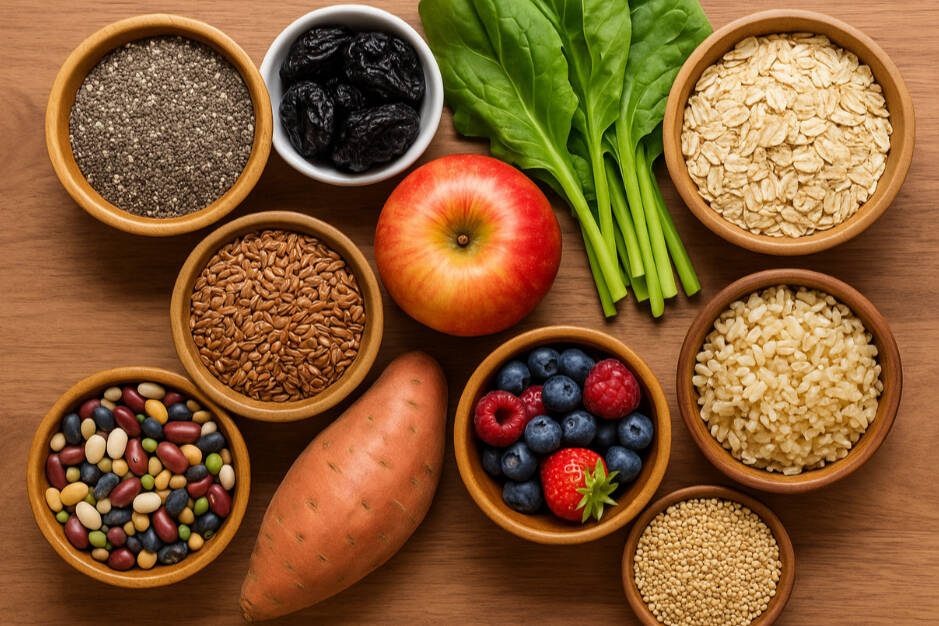How to boost growth hormone?—a phrase that’s often thrown around with glossy marketing and quick-fix hacks.
But let’s ground this conversation in something real. Imagine your body as a high-performance sports car. You could keep upgrading the exterior, adding shiny parts like supplements, injections, fat burners, meal plans with fancy names, but if the engine isn’t functioning right, all those upgrades won’t take you very far.
The engine here is your hormonal system. And one of its most powerful components is growth hormone (GH), also referred to as somatotropin or human growth hormone (HGH).
Over the years, we’ve worked with countless individuals chasing fitness, healing, or simply better health, and many had one thing in common: their lifestyle was unknowingly suppressing their body’s own intelligence, like poor sleep, constant stress, and erratic eating habits.
Like the young athlete who trained hard but wasn’t sleeping well. His muscles wouldn’t recover, his performance dropped, and despite clean eating, his strength plateaued. Once his deep sleep improved, so did his muscle gains and recovery, without changing his workout.
Now here’s the truth that often gets overlooked: your body already knows how to boost growth hormone naturally. It has the intelligence, the design, and the biochemical pathways to do it. But like any intelligent system, it needs the right environment. And this is where most people are falling short, not because they don’t try hard enough, but because they’ve been taught to outsource their health.
Growth hormone isn’t something you need to inject into your life unless there’s a serious medical condition. Certain growth hormone foods, like those rich in amino acids such as arginine and glutamine, can support your body’s ability to maintain healthy levels. But we’ll get to those a little later. What you need is to support your body to do what it already knows best.
Let’s unpack that with science, not gimmicks. Because health doesn’t have to be complicated. It just has to be aligned.
What is Human Growth Hormone (HGH) and Why Does It Matter?
Now that we understand the body already knows how to boost growth hormone on its own, let’s take a moment to understand what this hormone really does and why it deserves your attention, regardless of your age, body type, or fitness level.
Human Growth Hormone, or HGH, is produced by the pituitary gland—a small, pea-sized gland tucked deep within the brain, yet responsible for some of the most powerful processes in your body. HGH plays a central role throughout your life. It’s deeply involved in how your body grows, heals, metabolizes fat, builds lean muscle, and even recovers after illness or injury.
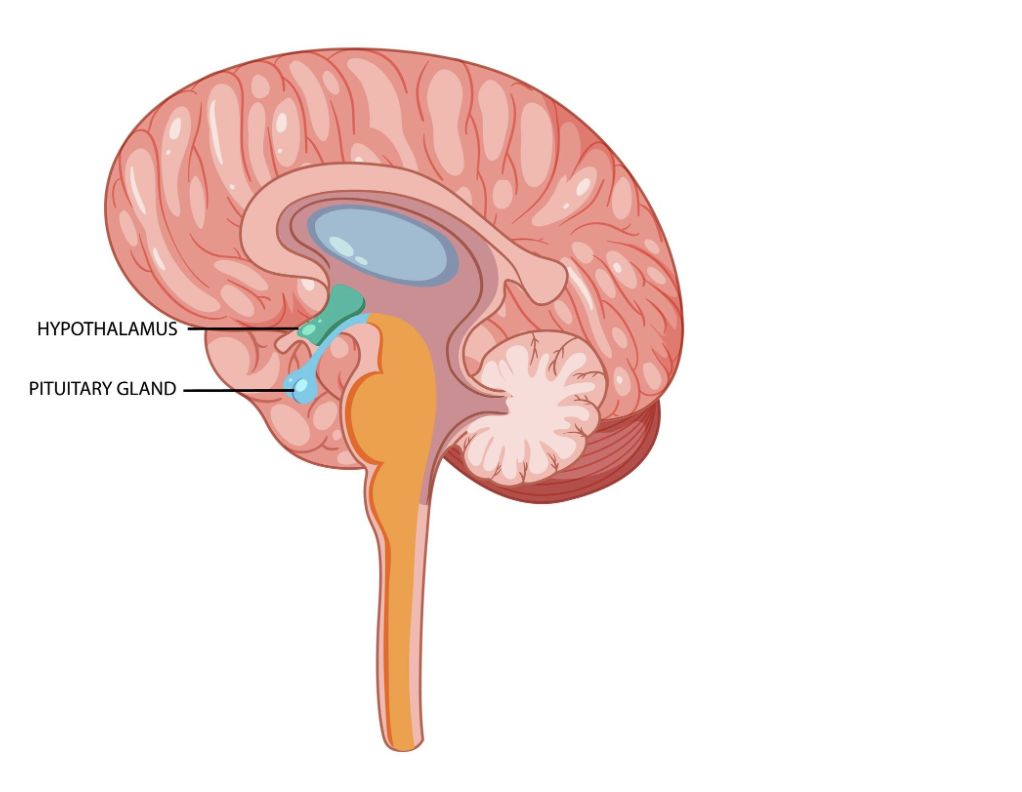
HGH is crucial not just in childhood for linear growth, but also in adulthood for maintaining tissue integrity, metabolic health, and psychological resilience. As we age, growth hormone levels naturally decline, but lifestyle can significantly influence how quickly or slowly that decline happens.
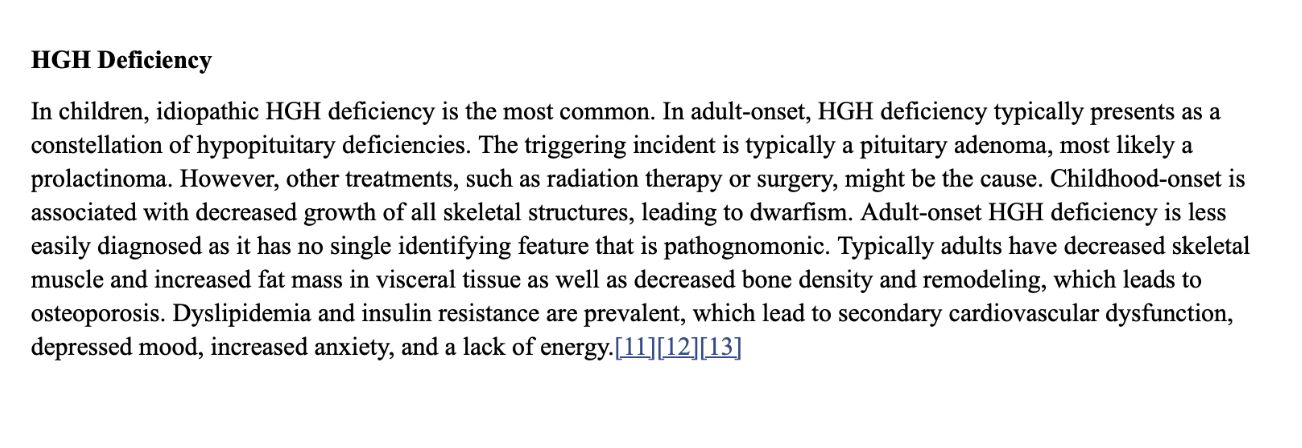
So yes, how to boost growth hormone isn’t just a trending phrase for athletes or anti-aging enthusiasts, it’s relevant for anyone who wants to feel more energized, resilient, and in alignment with their body.
We’ll soon explore the simple lifestyle shifts, timing, and growth hormone foods that can naturally support these levels. But for now, just know this: growth hormone isn’t something you need to chase through shortcuts. It’s something your body produces intelligently when you allow it to.
How to Boost Growth Hormone: Recognizing the Signs Before Making the Shift
We often ask, how to boost growth hormone, but sometimes, the more important question is: Why did it drop in the first place?
You see, most people don’t wake up one day and suddenly feel off. It happens subtly. Over time. Through years of chasing deadlines, skimping on sleep, mindless snacking, and ignoring what the body’s been trying to say in whispers before it screams.
Let’s simplify this.
Common Signs of Low HGH (That We Often Brush Off as ‘Normal Aging’)
Many of these may sound familiar, not because they’re rare, but because they’re common in modern lifestyles. That doesn’t mean they’re normal or irreversible.
- Fat Metabolism and Body Composition: Growth hormone plays a key role in fat breakdown, especially visceral fat that settles around the belly and internal organs. Low HGH is strongly linked with increased abdominal fat and insulin resistance. A consistent lifestyle approach, paired with the right growth hormone foods, can help reduce this stubborn fat, improve metabolism, and support long-term weight balance.
- Muscle Strength and Recovery: Whether you’re training at the gym or just trying to stay fit as you age, HGH supports protein synthesis and muscle regeneration. It helps in tissue recovery, strength, and mobility. Instead of chasing shortcuts, knowing how to boost growth hormone naturally gives your body a chance to maintain lean, functional muscle.
- Cellular Repair and Inflammation Recovery: One of HGH’s most powerful jobs is supporting cell turnover and repair. Whether you’re recovering from surgery, an illness, or chronic inflammation, your body leans on HGH to rebuild tissue and restore balance.
- Bone Strength and Osteoporosis Prevention: Healthy HGH levels support bone mineral density, reducing the risk of fractures, especially in women after menopause and aging men. When you understand how to boost growth hormone with lifestyle and food, you’re also investing in long-term skeletal health.
- Immune Resilience and Faster Recovery: HGH supports immunity through its effect on immune cell production. If you’re constantly falling sick or your recovery is slow, low HGH might be part of the picture. It’s not always about more medicine, it’s also about restoring internal balance through nutrition, deep rest, and growth hormone foods that support your immune system.
- Energy and Better Mitochondrial Health: Ever feel tired even after sleeping well? HGH affects mitochondrial function, your cell’s power plants. Low levels can leave you feeling flat, foggy, and fatigued. When people learn how to boost growth hormone through simple daily actions, they often notice their natural energy returning.
- Mental Wellness and Emotional Balance: Low growth hormone doesn’t just impact the body; it affects the mind too. Low HGH is linked with symptoms like brain fog, low mood, and reduced motivation.

So, no—it’s not always about age. Lifestyle plays a far greater role than we give it credit for. Sleep debt, emotional stress, processed foods, erratic eating, and the constant ‘go-go-go’ mode all contribute. And while age may lower HGH gradually, lifestyle can suppress it prematurely.
This is why asking how to boost growth hormone naturally isn’t just a health fad, it’s a relevant question for anyone feeling stuck in a body that’s not cooperating anymore.
5 Lifestyle Strategies to Naturally Support Growth Hormone
When people ask me how to boost growth hormone naturally, my first response is simple: before reaching for supplements, injections, or any magic bullet, ask yourself, “Am I honoring the fundamentals?”
Because the truth is, your body wants to produce growth hormones. It’s coded into your biology. The real work is about getting the noise out of the way so it can do what it’s supposed to.
Let’s unpack the most effective, science-backed lifestyle strategies to support this hormone, sustainably, simply, and naturally.
1. Deep Sleep, especially deep, slow-wave sleep (SWS) = The Most Powerful HGH Trigger
If there’s one non-negotiable that can make or break your HGH levels, it’s sleep. Most of the daily HGH is secreted during deep non-REM stages. HGH pulses peak within the first 90 minutes of sleep, predominantly during non-REM cycles. If sleep is fragmented or delayed, this rhythm is disrupted, and so is your hormone production. Poor sleep quality, whether due to blue light, caffeine, or late-night stress, can blunt this pulse.
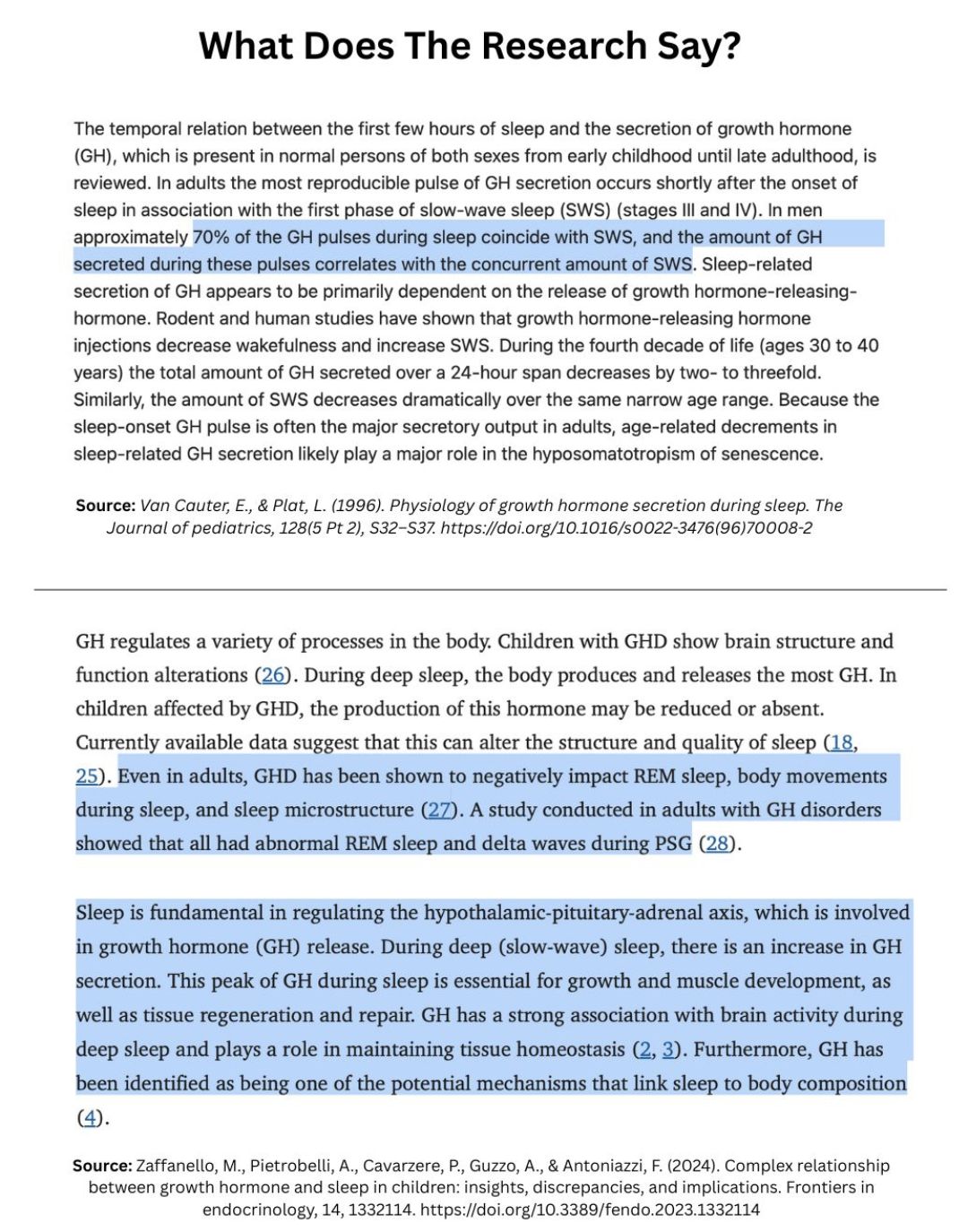
Lack of deep sleep doesn’t just lead to low energy, it interferes with fat metabolism, muscle recovery, and cellular repair, all of which depend on optimal HGH function.

Here’s how to support better sleep (and, in turn, your hormone health):
- Digital cleanse: Cut blue light exposure 60 minutes before bed. It interferes with melatonin, which indirectly impacts growth hormone release.
- Melatonin-supportive foods: Consume tart cherries, almonds, oats, bananas—these are nature’s gentle sleep aids, if these suit you.
- Sleep environment: Cool, dark, quiet. Think cave-like conditions. Your biology still follows ancient patterns.
2. Early Dinners & Smart Fasting Windows—Let HGH Flow Naturally
One of the most effective ways to enhance your body’s growth hormone rhythm is by allowing longer gaps between your last meal and bedtime. Smart fasting, particularly overnight and circadian-aligned fasting, leads to a measurable rise in HGH levels. In simple terms, when your insulin is low, HGH has room to rise.

Now, this doesn’t mean extreme fasting or skipping meals. It means tuning into what your body was built for, eating with the sun, not the screen.
Here’s what works:
- Wrap up dinner by sunset or early evening: A lighter, earlier meal allows your body to slip into repair mode by bedtime.
- Create a fasting window of 12–14 hours overnight: This isn’t deprivation; it’s restoration.
- Avoid late-night snacking: That little bite post-dinner? It might be stealing your hormone surge while you sleep.
3. Train Smart: Compound Movements & HIIT Over Marathons
When it comes to movement, not all workouts are equal for HGH. Short, intense bursts of effort, like HIIT (High-Intensity Interval Training) and compound strength movements, trigger a greater release of growth hormone than long, steady-state cardio.

Resistance training combined with minimal rest led to significant HGH spikes. Think squats, push-ups, pull-ups, not isolated curls or hours on a treadmill.

Key takeaways:
- Prioritize compound lifts: These recruit multiple muscle groups and elevate HGH more efficiently.
- Less is more: Overtraining raises cortisol, which actually suppresses HGH.
- Recovery matters: Give your body space to rest, recover, and rebuild. Growth doesn’t happen during the workout, it happens between them.
4. Growth Hormone Foods: Nature’s Silent Support System
When people ask about growth hormone foods, I always remind them, nutrition isn’t about hacks. It’s about consistent nourishment. Certain nutrients act as co-factors or precursors that support HGH indirectly, especially when combined with quality sleep and movement.
Let’s break down some choices:
- L-Arginine: Found in chickpeas, lentils, dairy, pumpkin seeds, and nuts. Arginine can enhance HGH response, especially when taken away from meals.

- Tryptophan-rich foods: Consume turkey, eggs, oats, and sesame seeds. These help produce serotonin, which converts into melatonin, a hormone that supports deeper sleep, and by extension, better HGH cycles.
- Other helpful additions: Tomatoes (lycopene for cellular health), eggs (complete amino acid profile), mustard seeds, and legumes.
Remember, real food over synthetic powders. A colorful, balanced plate supports your hormonal landscape far more than a scoop of something unpronounceable.
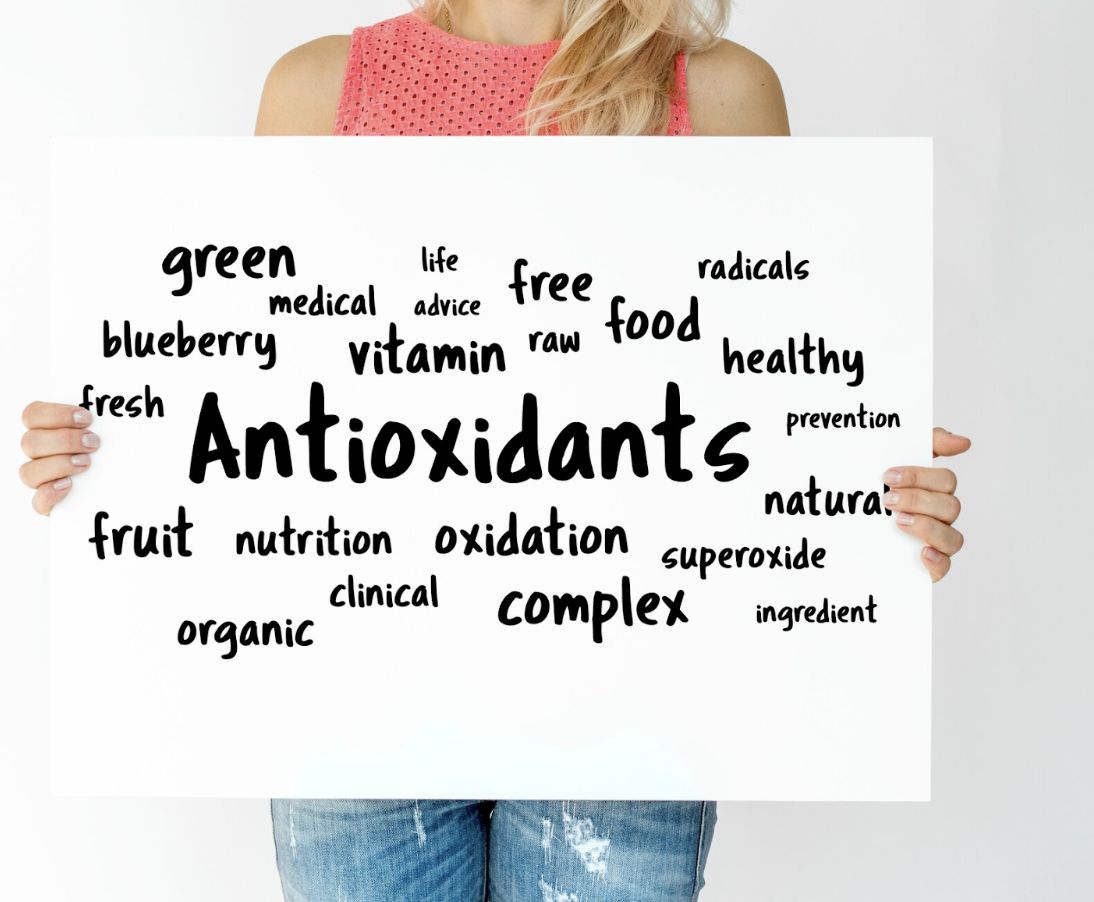
5. Calm Is Your Superpower: Managing Stress for Hormonal Balance
We often forget this, but your stress response is one of the biggest disruptors of hormonal harmony. Chronic stress elevates cortisol, your survival hormone, which in excess acts as a direct antagonist to HGH. Elevated cortisol inhibits the pulsatile secretion of growth hormone, creating a hormonal seesaw.

Now here’s where the lifestyle piece comes full circle: The more you slow down, the better your body functions.
Every time you pause to breathe deeply, practice gratitude, meditate, walk in nature, or just unplug, you’re creating a hormonal environment that favors not just fat loss or muscle tone, but longevity.
This is why stress management isn’t fluff. It’s biology.
Disclaimer: The lifestyle strategies shared are general recommendations based on scientific research. However, every individual’s body responds differently, and it’s important to listen to your own needs. Please consult with a healthcare professional before making any significant changes to your sleep habits, nutrition, exercise routine, or fasting practices, especially if you have pre-existing health conditions or concerns.
When people ask how to boost growth hormone, we must remind them—it’s not always about doing more. It’s about doing what aligns.
Your body was designed for efficiency, not excess. And with the right lifestyle, you’re not ‘hacking’ growth hormone, you’re simply supporting what nature already built into you.
Final Message: Your Body Is Intelligent—Work With It, Not Against It
You don’t always need injections, shortcuts, or expensive therapies to learn how to boost growth hormone. You need alignment.
When you respect your body’s natural rhythm through good sleep, mindful eating, and smart movement, your hormones respond. They always have.
Tonight, skip the midnight snack. Go to bed an hour earlier. Move your body tomorrow morning. These little shifts may look simple, but they speak the language your body understands, and that’s where the real magic begins.
ALSO WATCH
Disclaimer: The information provided in this blog about how to boost growth hormone naturally is intended for educational purposes only and should not be considered as medical advice. Always consult with a qualified healthcare professional before making any changes to your nutrition or lifestyle, particularly if you have pre-existing conditions or are taking medication. Results may vary, and individual needs should be considered when implementing any of the strategies discussed.
The path to true wellness is unique for everyone.
With Luke’s Wellness Program, you’ll receive expert advice, support, and personalized plans that make your wellness journey simple and achievable.
Take the first step today and see how small, consistent changes can make a big difference in your life.
Schedule a one-on-one consultation with our experts by calling us at 1800 102 0253 or emailing us at [email protected].
Team Luke
Start Your Wellness Journey
Feeling inspired to take the next step in your wellness journey? Connect with us to explore how our tailored programs can support your health journey. Your transformation is just a conversation away.


